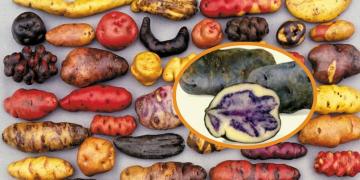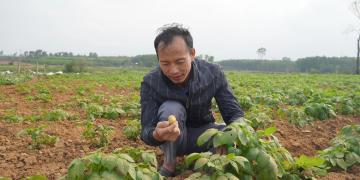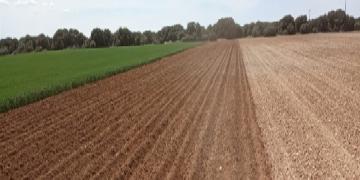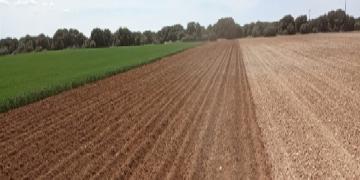Swiss: Farmers want to save the potato harvest with banned genetic engineering
Swiss farmers are struggling with massive potato crop failures. They are now putting their hopes in genetic engineering. The plans are also attracting criticism.
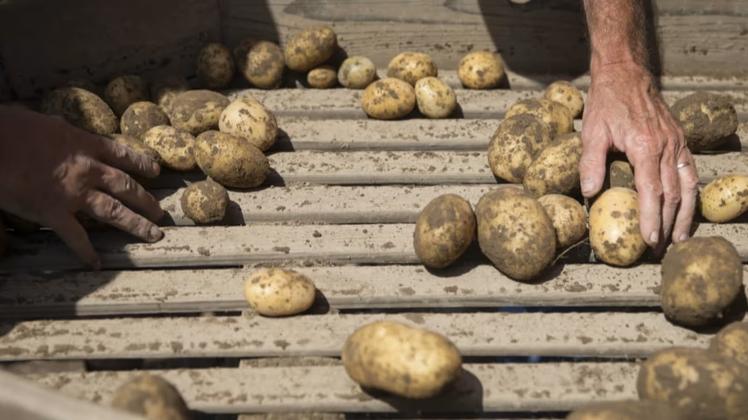
Hard times for Swiss farmers: Last year’s heavy rainfall has greatly favored fungal diseases such as late blight on potatoes.
The harvest was accordingly poor. Without imports there would be a potato shortage in Switzerland !
Because the situation remains tense, potato producers are now hoping for a miracle weapon: namely genetically modified potato varieties.
“We are open to such developments,” rejoices Christian Bucher, managing director of the industry organization Swisspatat, to Nau.ch.
However, genetically modified potatoes are currently banned.
Farmers want to rely on resistant potato varieties
New breeding methods promise that the varieties can be made robust against the harmful fungi within a short period of time. "It is possible to breed robust varieties using conventional methods. But that takes much longer and desirable properties of the potato are lost in the process."
But this is exactly where Claudia Vaderna, Managing Director of the Swiss Alliance for GMO-Free, disagrees.
"There is no need for genetic engineering for this," she tells Nau.ch. "Because there are already varieties available from classic breeding that are resistant to late blight."
Do you like potatoes?1Yes, what a versatile staple food.2No, I don’t like potatoes at all.It also warns of possible dangers of genetic engineering – and lists: risks of the technology, the risks of unwanted cross-breeding, dependence on foreign countries for the supply of planting material and the further monopolization of the seed market.
Farmers hope for fewer pesticides
Christian Bucher from Swisspatat explains the great advantage of robust varieties as follows: "You have to use fewer pesticides , which makes potato cultivation more sustainable."
And: “Current experiments show that by using robust potato varieties, the use of fungicides can be reduced by up to 75 percent.”
Fungicides are chemical or biological agents that kill fungi.
The use of pesticides is now essential for farmers in potato cultivation. "If you don’t treat conventional potato varieties with fungicides, you’ll have a total failure within a few days if there’s an infestation."
Bucher therefore emphasises: “The use of pesticides is therefore currently unavoidable – not even in organic farming.”
"You don’t plant anything alien"
Genetically modified plants have another advantage. "During the long conventional breeding cycles, positive characteristics such as taste are often lost. With gene scissors, you can retain all the good characteristics in the potato in a relatively elegant way."
Bucher emphasizes: "With the gene scissors, you use the genetic material within the potato and optimize it. So you don’t plant anything foreign to the species."
The potato harvest was poor last year. - keystoneThe reason for this is bad weather and fungal diseases. - keystoneThis leads to shortages: Hero’s Rösti is actually made from Swiss potatoes - but now the potatoes come from the EU.But critics often assume exactly that. "Much of the criticism of genetic engineering is directed at the first generation of breeding methods. There were actually areas of application here that did not always provide added value for agriculture and the environment ."
However, genetic engineering has now progressed significantly, says Bucher.
Claudia Vaderna from the Gentech-Free Alliance, however, stresses that there are alternatives to genetic engineering. "The choice of variety is key. There are resistant varieties from classic breeding that led to good yields even in the wet summer last year."
In addition, there are measures that farmers can take to reduce disease pressure: "Moderate fertilization, optimized crop management, the geographical location of the plot or diversification of the cultivation system."
Federal Council wants to relax genetic engineering rules – criticism
However, genetically modified potatoes cannot yet be grown in this country. Switzerland has a moratorium on genetic engineering, which provides for a temporary ban on the cultivation of genetically modified crops.
The Federal Council is currently examining whether the rules for gene scissors should be relaxed in Switzerland. In the EU, there is already a draft law that the Federal Council is using as a guide.
"It is important that Switzerland follows the EU ," says Christian Bucher of Swisspatat. Because: "Today, all potato varieties for commercial cultivation come from other European countries."
What is your stance on genetic engineering?1I am generally positive.2I am fundamentally critical.He warns: "Without a corresponding law , sooner or later we will no longer have any new varieties and will no longer be able to participate in breeding progress."
But anti-genetic engineering activist Claudia Vaderna sharply criticizes the planned special law: "The new genetic engineering is also genetic engineering and should therefore be regulated in the existing Genetic Engineering Act. The special law is a misleading maneuver by the Federal Council to circumvent the moratorium."
The Federal Office for the Environment (FOEN) says of the current status of the planned special law: "It is planned that the Federal Council will open the consultation on the proposal in the first half of this year."
Fuente: nau.ch/

